Double Trouble (Otis Rush)
Double Trouble (Otis Rush)
Arriving in Chicago in the late 1940's Otis Rush has become a prime Chicago blues innovator on Chicago's West and South sides with his guitar vibrato and soul stirring intense vocal delivery. Rush was the first of the new wave of young West side blues artists to record, hitting the national R & B charts with his first single "I Can't Quit You Baby" in 1956. Stevie Ray Vaughan named his band Double Trouble after Otis Rush's song, attesting to his influence. The left handed guitarist remained relatively obscure until the 1990's when he won the 1994 W.C. Handy Award as the Male Blues Artist of the Year.
Double Trouble (Otis Rush)
Otis Rush was born in 1935 in Philadelphia, Mississippi, one of the most racially mixed towns in the Delta. Like many black youths in the Delta, Otis sat near the radio every day at 12:15, tuning in to KFFA, broadcast out of Helena, Arkansas, for the King Biscuit Time show, hosted by Sonny Boy Williamson and Robert Lockwood, Jr. For half an hour Williamson and Lockwood played live in the studio, often featuring other rising stars of the blues, such as B.B. King, James Cotton and Pinetop Perkins (who was an original member of the studio band, called the King Biscuit Entertainers.) Otis decided he wanted to be a blues player. He began playing the blues harp at the age of six and later his father rigged him a makeshift one-string guitar out of a broom handle and baling wire.
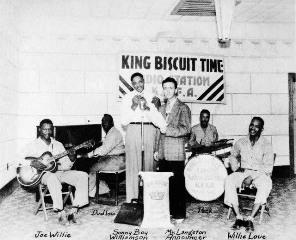
King Biscuit Time
In 1948, Rush’s father moved the family to Chicago. At the age of 14, Otis began working 12-hour days in the stockyards. At night he played the blues with two other young stockyard workers. One night when Rush was 18, Willie Dixon walked into the Alibi club on the West Side of town. Dixon, one of the true geniuses of American music, had just left Chess Records in a bitter dispute over royalties. The great bassist and arranger had taken a job with the new Cobra Records, a small Chicago label run by a TV repairman. Dixon was enthralled by Rush’s uniquely expressive, almost tortured guitar-style and signed him on the spot.
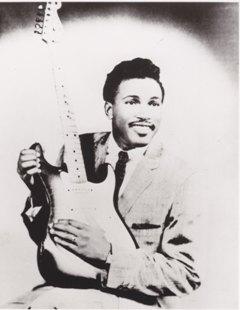
Otis Rush
The first song Rush recorded was Dixon’s “I Can’t Quit You, Baby.” Dixon said he wrote the song about an obsessive relationship Rush was having with a woman at the time. Dixon wanted to provoke an emotional response from the singer and he got one. The song hit number 6 on the Billboard R&B charts. Over the next two years Rush and Dixon would release eight more records, each of them dazzlingly original.
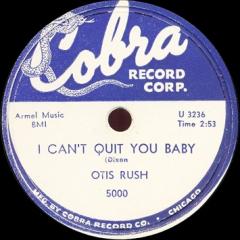
“I Can’t Quit You, Baby” 1956
Despite hit singles from Rush, Magic Sam, Ike Turner and the Rhythm Kings and the young Buddy Guy (who Rush discovered at “Battle of the Blues” show at the famous Blue Flame Club), Cobra Records went bankrupt in 1958. Rush followed Willie Dixon back to Chess Records.
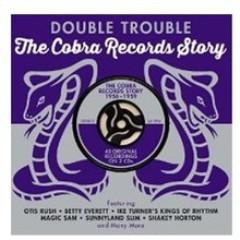
Cobra Records Story (Greatest Hits)
This was the beginning of Rush’s seemingly endless professional odyssey, from label to label. Even with Dixon back in his slot as artistic director at Chess, Rush’s relationship with the label proved a disappointment. In two years, Rush recorded eight songs for Chess, but management only released one single, the brilliant “So Many Roads, So Many Trains,” featuring one of Rush’s most vicious guitar solos.
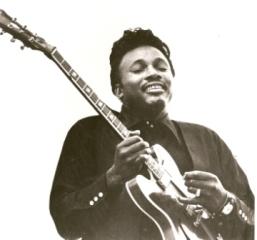
Otis Rush
In those days Rush tended to close with one of his fiercest compositions, “Double Trouble”, a tormented minor key blues about a man who has lost his job and his lover. Since its release as a single in 1958, the song has been recorded by several blues and other artists.
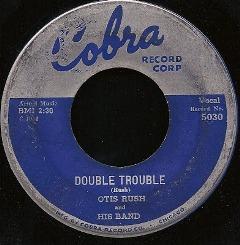
“Double Trouble” 1958
"Double Trouble" is a slow tempo twelve-bar blues notated in 4/4 time in the key of D minor. "The song's underlying air of quiet desperation stretched to the breaking point is enhanced by brilliant use of dynamics and some truly mind-boggling, strangled guitar fills near the end." According to Otis Rush, the song's title was inspired by a comment by a woman upon viewing her hand during a card game "trouble, trouble, trouble, trouble, double troubles".
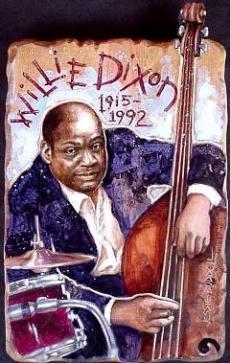
Willie Dixon
Rush then moved to Duke Records until 1965, where once again his label released one lone single, “Homework.” After Duke, he recorded for both Vanguard's compilation and for Cotillion (where in 1969 he released the “Mourning In The Morning,” a commercial failure). Capitol Records came next, and in 1971 Rush recorded the stellar “Right Place, Wrong Time” album. Amazingly, Capitol chose not to release the album, and it didn't see the light of day until 1976, when the tiny independent label Bullfrog obtained the rights and released it.
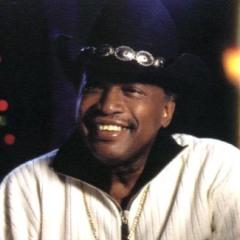
Otis Rush
A release on Delmark in 1975, “Cold Day In Hell” and a handful of live albums through the '70s and early '80s kept Rush somewhat in the public eye, and he continued to perform in clubs and at blues festivals nationwide and in Europe and Japan.
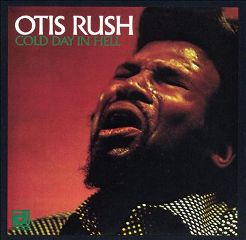
“Cold Day In Hell” album
Otis Rush pioneered what critics dubbed the "West Side style", which included impassioned soul-tinged vocals, coupled with an intense, yet urbane, style of guitar playing. He often played in the minor key which imbued his songs with an atmosphere of dark and brooding emotional intensity rarely achieved in modern blues. He used falsetto to dramatic effect, and his left handed string bending allowed him to hit notes uniquely his own.
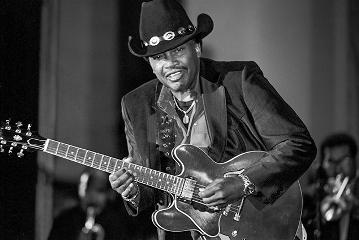
Otis Rush
Rush was one of the first musicians to use the electric bass in his band -- until then Chicago bands used either the bass strings on a regular guitar, or the stand up bass usually played by the ubiquitous Willie Dixon. This new sound caught the imagination of both the young and established musicians who would flock to hear him play. Night after night, Otis was setting the standard for a new, more aggressive type of blues, that would influence younger musicians like Luther Allison, Freddie King, and Tyrone Davis.
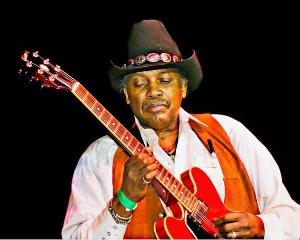
Otis Rush
Otis Rush is still the standard that young musicians measure themselves against. Having influenced not only his peers in Chicago, but almost every major rock figure including Peter Green, Jeff Beck, and Eric Clapton in England, and Santana, Johnny Winter, Mike Bloomfield and Stevie Ray Vaughan.
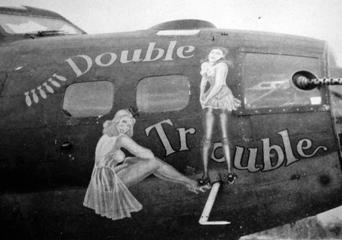
DoubleTrouble Bomber (B-17)
Otis Rush - Double Trouble Lyrics
I lay awake at night Can't sleep just so troubled It's hard to keep a job Laid off and havin' double trouble Hey, they say you can make it if you try Yes, in this generation of millionaires It's hard for me to keep decent clothes to wear You laughed at me walkin' baby, when I had no place to go Bad luck and trouble have taken me I have got no money to show Hey, hey, to make it You've got to try, baby, that's no lie Yes, in this generation of millionaires It's hard for me to keep decent clothes to wear
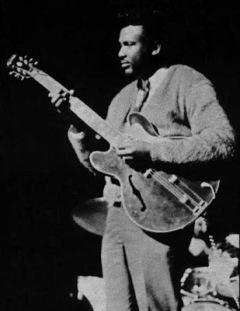
Otis Rush








